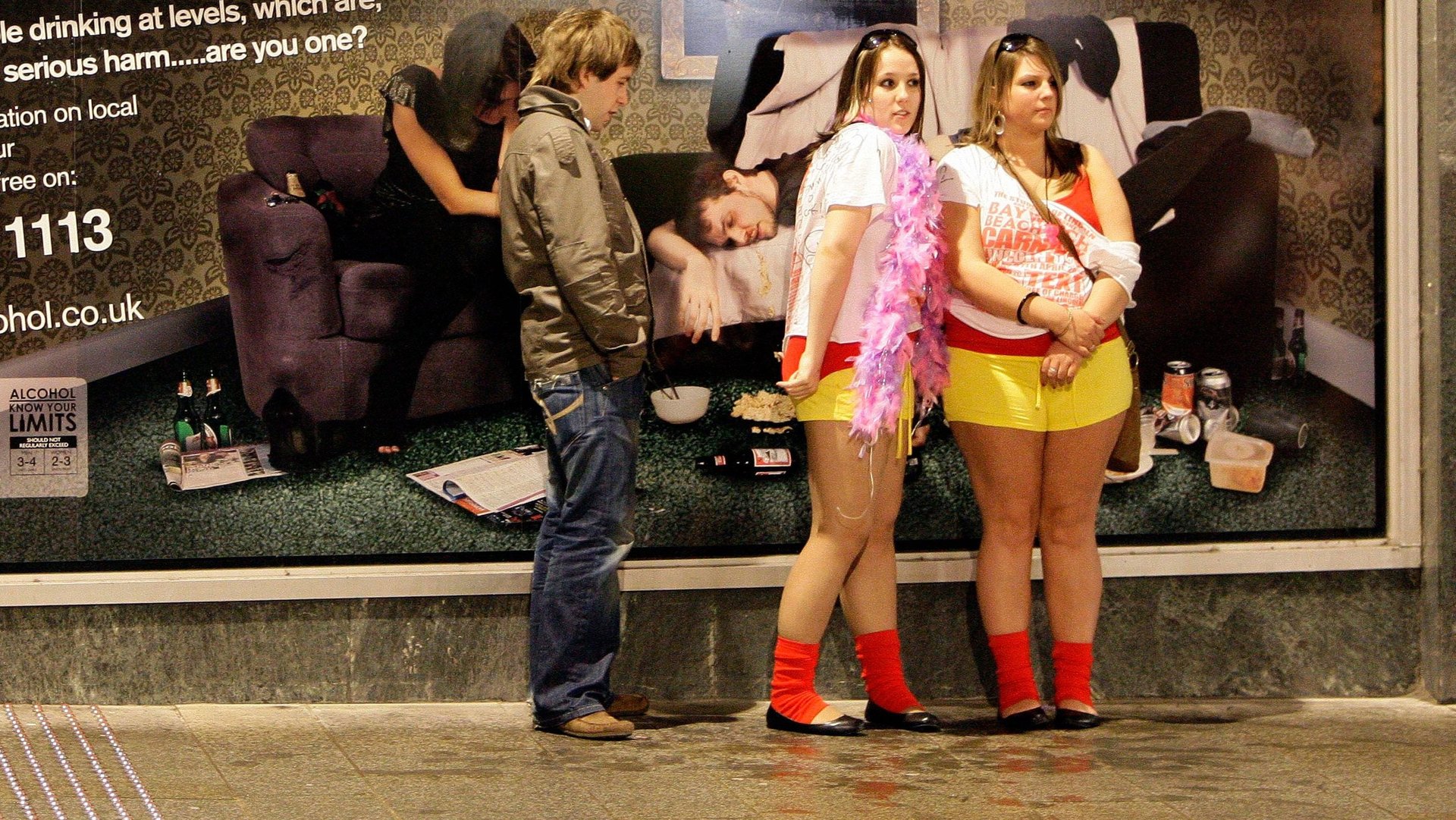Young people are more likely to feel lonely than any other age group
When we think about loneliness, our minds often go straight to the elderly and socially isolated. But a new, huge UK study finds that the people most likely to suffer from loneliness are young, mobile types with their whole lives ahead of them.


When we think about loneliness, our minds often go straight to the elderly and socially isolated. But a new, huge UK study finds that the people most likely to suffer from loneliness are young, mobile types with their whole lives ahead of them.
Adults between the ages of 16 and 24 were most likely of any group to say they felt lonely, with 40% responding that they felt lonely “often” or “very often.” By contrast, only 27% of those over age 75 had the same response. The research was conducted with a BBC survey of 55,000 people which was then analyzed by psychologists at the University of Manchester.
Why are young people so lonely? An analysis accompanying the release of the findings notes that our late teens and early 20s are often a tumultuous period. People experience lots of changes, including moving away from home, starting college, and experiencing our first jobs and relationships. But young people may not yet be well-equipped to deal with the stress and emotional upheavals.
The survey took around 40 minutes to complete. In addition to self-reported assessments of loneliness, it included tests like gauging the emotions of another person by looking at a face, or just a set of eyes, to find out whether lonely people tended to be any worse or better at reading the emotions of others. (Lonely people weren’t different in this respect.)
One of the limitations of the survey was that, because it was self-selecting, it may have overstated the degree to which loneliness is felt amongst the population as a whole. It’s also possible younger people are more likely to fill in an online survey. The large number of responses means the study is still worth examining, however. The survey was publicly available through a UK site, but not restricted to participants from only that country.
Among the most important takeaways from the study is that loneliness is a common experience among young people—which means they should really cut themselves a break. One of the hardest things about loneliness is that it’s difficult to admit to without feeling like we have somehow failed. ”For me, the most interesting findings relate to the stigma of loneliness and the varied solutions people had to overcome loneliness,” Pamela Qualter, professor of psychology at the University of Manchester, who led the study, said in a press release. “Those findings suggest that we need to be kinder to ourselves when we feel disconnected from others, but also that there is a whole toolkit of potential solutions that we can try.”
Mind, a mental health charity, has a helpful set suggestions about what to do when we’re feeling lonely. They suggest thinking about it as a practical problem, like hunger. If hunger is your body’s signal that it needs food, loneliness is a signal that it needs human contact. They also acknowledge that some of the advice, like “get out and meet people,” can feel overwhelming to someone suffering deeply. So the organization has a few suggestions about how to ease into more social contact—for example, by attending a class where the focus is on an activity, not on social interaction.
The UK is preoccupied with the topic of loneliness at the moment. A Commission on Loneliness was set up following the death of Jo Cox, a member of parliament who campaigned on the issue, in 2016. The following year, the commission released its first report (pdf), calling for action from government and pointing people towards services that already exist. It also suggested three strategies for tackling loneliness at a more day-to-day level: Taking personal responsibility for maintaining relationships, and making sure that they don’t fall by the wayside; engaging with family, neighbors and wider social communities to combat loneliness more widely; and making communities as welcoming as possible.